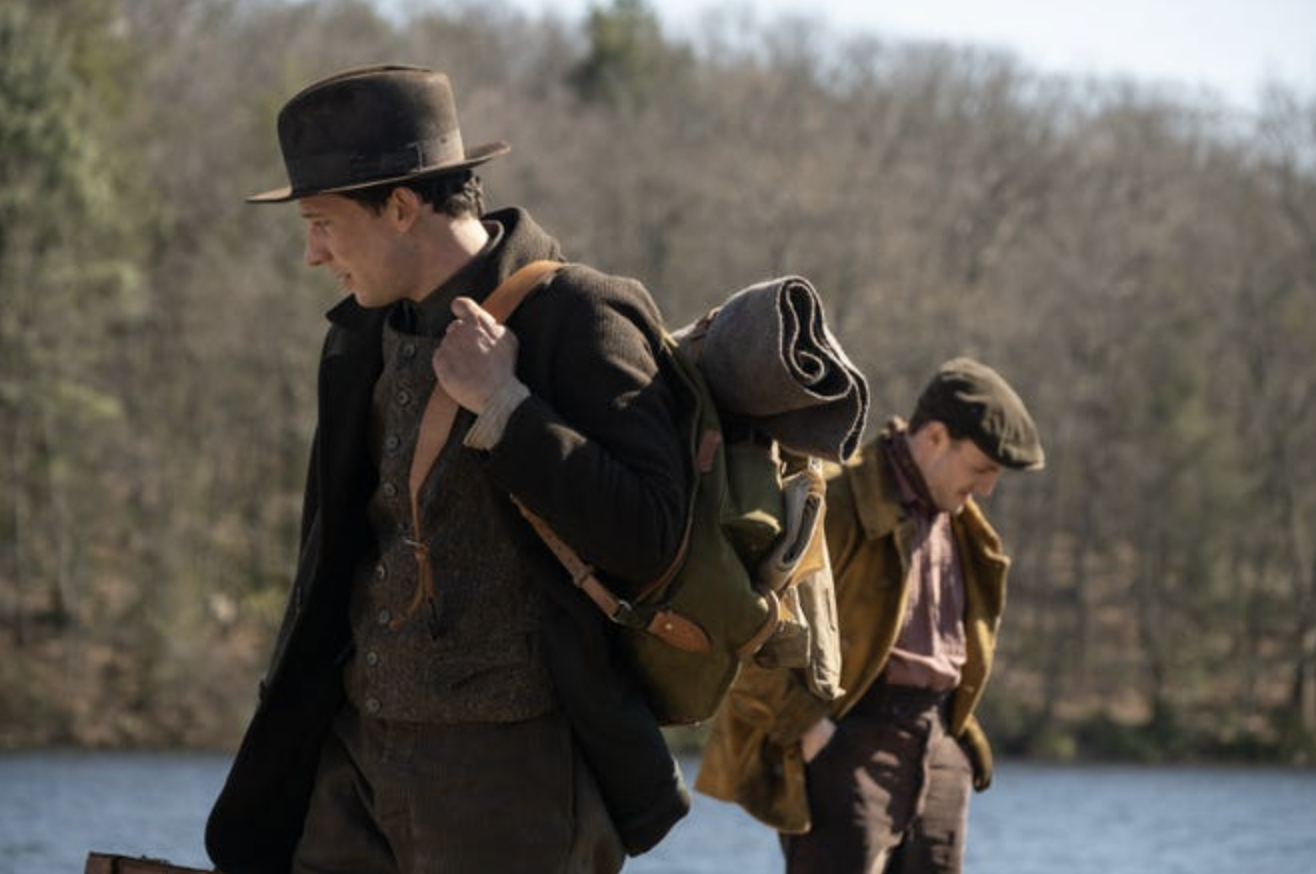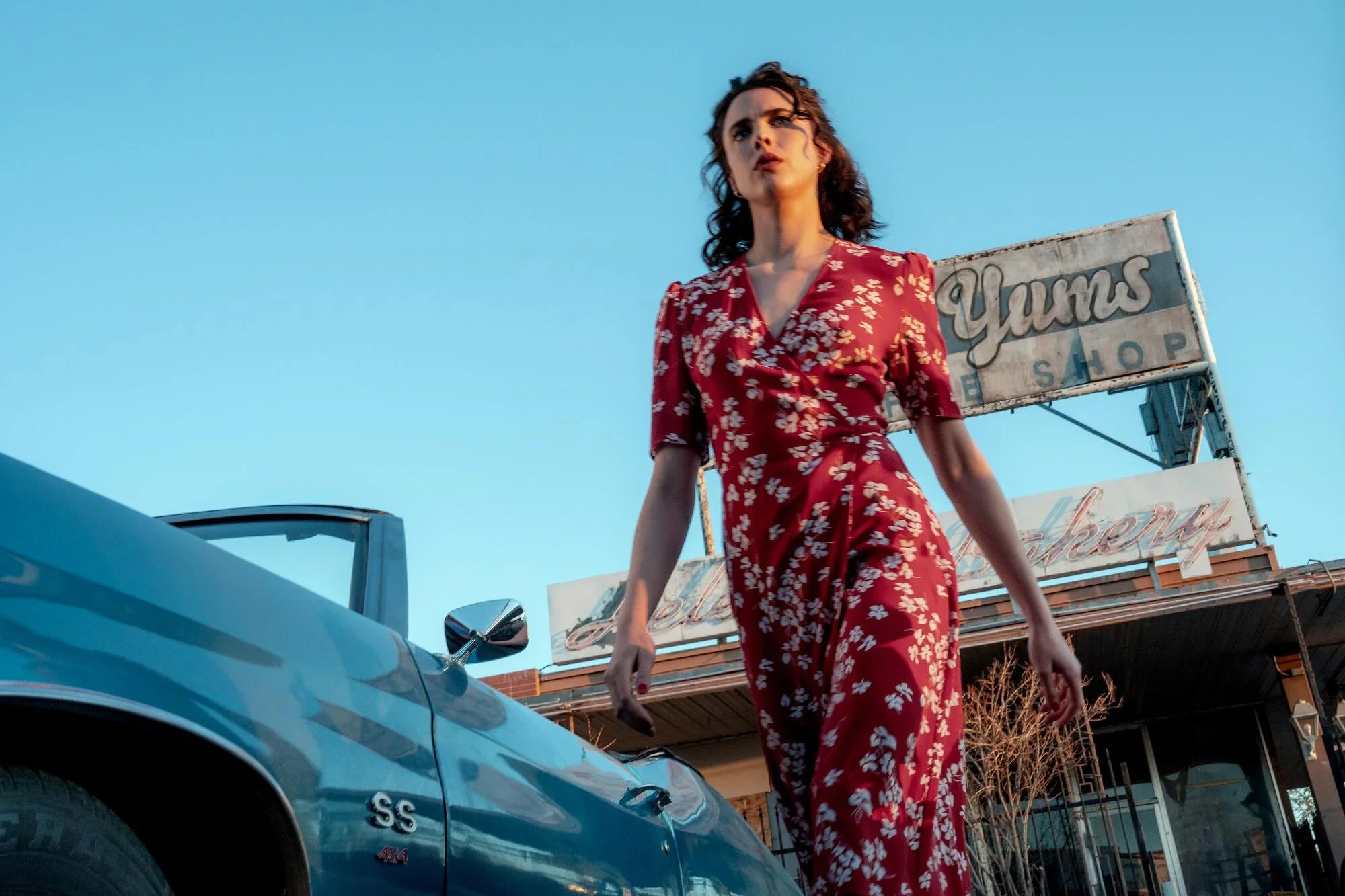THE HISTORY OF SOUND
Directing: A-
Acting: A
Writing: B+
Cinematography: A-
Editing: A-
Music: A
Maybe The History of Sound isn’t for everyone, but it’s certainly for me. It’s a moving love story, it’s a period piece, it’s a sad meditation on love and loss in the context of a same-sex relationship but without any gay trauma tropes associated with it. It’s about two men who fall in love who also happen to be incredibly talented musicians with a love of hyper-regional folk music, of which this movie is packed—The History of Sound isn’t quite a musical, but it very much hinges on its musical content. Many, many songs are performed, mostly solo or in a duo and mostly a cappella. Occasionally there is guitar or banjo accompaniment, but only as subtle augmentation to the beautiful, and often haunting, vocals.
It’s been quite a year for movies about folk musicians, from The Ballad of Wallis Island to Sinners, and now The History of Sound. I’m pretty disappointed to discover that although those first two films had soundtrack albums issued, it appears The History of Sound did not; I’d love to listen to it again. It also has a key thing in common with Sinners, in terms of what appears to be authentic history of folk songs.
In a pretty long stretch of the film, David (Josh O’Connor) has taken Lionel (Paul Mescal) along with him on a “song collecting” trip, walking from village to village in New England. In one key scene, they visit a village with a high percentage of Black residents, and this is the one time we see them recording a song by a Black singer on the machine they use to record songs on wax cylinders. When they leave the village, they pass a large group of police, clearly preparing to wreak some kind of terror on that community. This is our first glimpse of wildly different approaches or worldviews between David and Lionel. Lionel grew up on a small farm in rural Kentucky and knew a grandfather who was a Confederate soldier in the Civil War. David is American-born but spent a couple of years in England with an uncle, doing a “song collection” project there when he was younger. David, who has been drafted in World War I and only hints at how he’s seen some shit, bristles at Lionel’s suggestion that where you’re from should have any relevance to how you view and understand the world and how it works.
The History of Sound moves at a very slow pace, but is constructed with some expert plotting, bringing some of it full circle in an ending sequence starring Chris Cooper as Lionel as an old man, in a way that will truly pierce your heart. Maybe half of The History of Sound is sort of like Brokeback Mountain if it were quieter, much more concerned with music, and far less tragic. In the other half, we see these men, and particularly Lionel—he’s the one we follow in this story from start to finish—in academia, attending university, in some cases teaching. Lionel eventually sees much of the world just as David suggests, but after multiple reunions and separations, he spends some years writing to David, then finally stops after a lot of time with no responses.
The latter half or so of The History of Sound is more concerned with Lionel and his longing memory of David, as Lionel moves on. He gets into a relationship with and nearly marries a woman (Emma Canning), and he uses the imminent death of his mother (Molly Price) as a means of ending it. One of my favorite things about The History of Sound is Lionel’s relationship with his parents—somewhat complicated with his mother; surprisingly pure with his father (Raphael Sbarge). Lionel shows no guilt about his sexuality, but neither does it ever seem to be a relevant part of any conversations with his parents. Instead, he gets a beautiful memory of his father showing him how to light a tub of thin paper on fire (I think it may be an unfolded tea bag?) in a way so the it burns straight down, and then lifts into the air in its final seconds of burning. You won’t get any of the tropes here about a macho or abusive father to a sensitive gay kid here. Lionel is clearly sensitive and accepted as his whole self; he’s also fully capable of all the things associated with running a farm.
Come to think of it, The History of Sound sidesteps stereotype at every turn, which is a big part of my love for it. There is a flashback, one of many later in the film that goes back to their time hiking and camping through New England, in which David asks Lionel if he worries about “what we’re doing.” Not only does Lionel not worry, it doesn’t even appear to have occurred to him.
This is a film in which two men have fallen in love at a time when such things were not at all understood, often by the men themselves, but it is simple circumstances rather than oppression that keeps them apart. There is a moment when Lionel suggests he could go back with David to help him catalogue his cylinders, and David discourages it. He says to Lionel that he would not be happy there in that small town, and possibly he’s right. David has a much surer sense of the direction of his own life, and he can see the direction of Lionel’s life better than Lionel can.
Much is revealed, much later, that was not at all clear during that time they spent in New England, and I won’t spoil it, except to say that you should keep tissue handy. And, of course, the thing that pierces through the heart is done through song—something that can carry the weight of emotion in ways nothing else can. It’s a callback to the scene of their meeting, and it brings things around to resolution, after years and decades of longing, in a perfect way. I can see how some might lose patience with the pacing in this film, but it would never have worked as well if the plot moved faster. This is the nature of longing, is it not? This is a film that will deeply move those with a mind to be spoken to in the way it’s communicating.
The songs of the countryside provide more than just dialectal history.
Overall: A-










